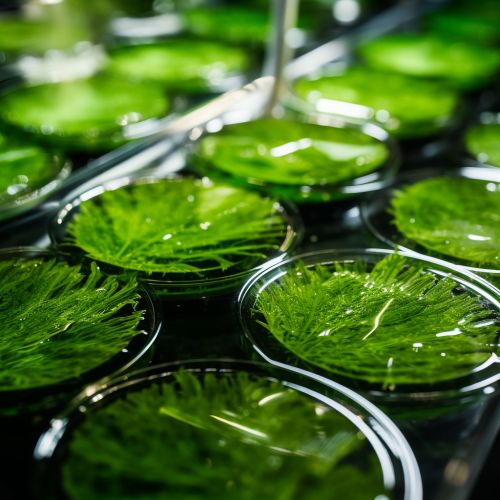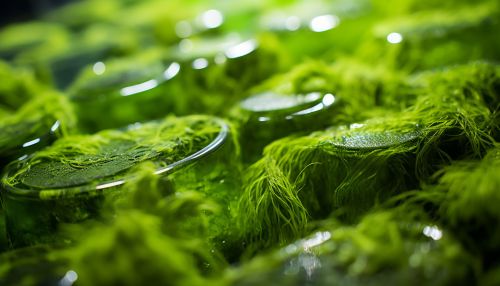Advances in Biofuel Production from Algal Biomass
Introduction
Biofuel production from algal biomass has emerged as a promising alternative to traditional fossil fuels. This article delves into the advances in this field, exploring the various methods of production, the benefits and challenges associated with algal biofuels, and the potential future developments in this area.


Algal Biomass
Algae are photosynthetic organisms that convert sunlight into energy-rich molecules. They are a diverse group, ranging from microscopic phytoplankton to large seaweeds. Algal biomass refers to the total mass of algae in a given area or volume, and it is a rich source of lipids, proteins, and carbohydrates, which can be converted into biofuels.
Biofuel Production
Biofuel production from algal biomass involves several steps: cultivation, harvesting, extraction, and conversion. Each step has seen significant advances in recent years, improving the efficiency and sustainability of algal biofuel production.
Cultivation
Algae cultivation can take place in open ponds or in closed photobioreactors. Recent advances have focused on improving the productivity of these systems, for example, through the use of genetically modified algae strains that grow faster or produce more lipids.
Harvesting
Once the algae have grown, they must be harvested. This can be a challenging step, as algae are often dispersed in large volumes of water. Advances in harvesting technologies, such as flocculation, flotation, and centrifugation, have improved the efficiency of this step.
Extraction
The next step is to extract the lipids from the algal biomass. This is usually done using solvents, but recent advances have seen the development of more sustainable methods, such as mechanical disruption or the use of ionic liquids.
Conversion
Finally, the extracted lipids are converted into biofuels, usually through a process called transesterification. Advances in this area have focused on improving the efficiency of the reaction and reducing the production of unwanted by-products.
Benefits of Algal Biofuels
Algal biofuels have several advantages over traditional fossil fuels. They are renewable, produce fewer greenhouse gas emissions, and do not compete with food crops for land. Moreover, algae can grow in a variety of environments, including saltwater, wastewater, and on marginal land.
Challenges and Future Directions
Despite these benefits, there are still challenges to overcome before algal biofuels can be produced on a large scale. These include the high cost of production, the need for large amounts of water, and the potential environmental impacts of large-scale algae cultivation. Future research in this field will likely focus on addressing these challenges and further improving the efficiency and sustainability of algal biofuel production.
